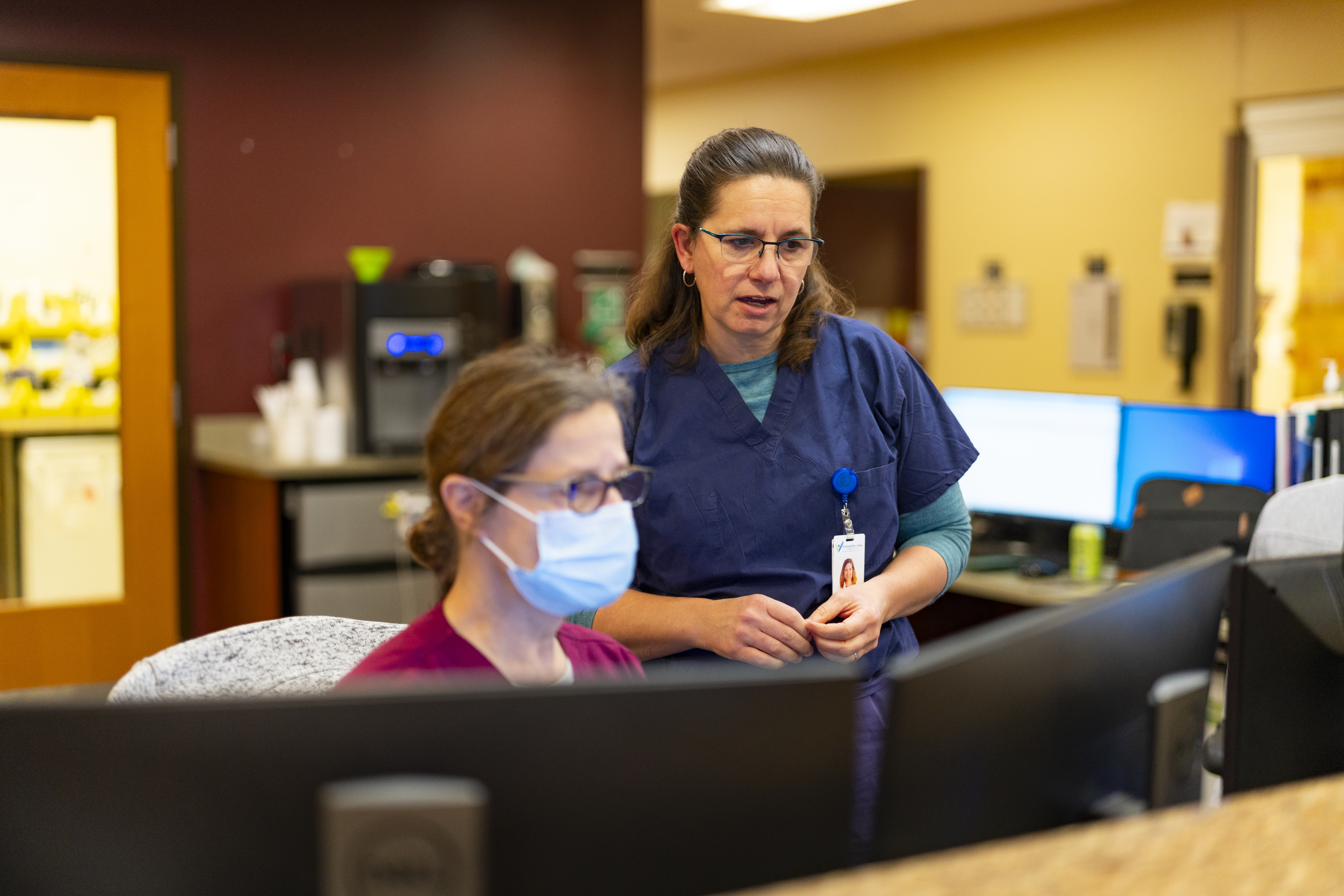As technology continues to play an increasingly important role in health care, the national movement towards electronic health record systems is leading to many improvements in the quality of patient care.
Dr. Kimberly Witkop, Vice President of Medical Affairs for Snoqualmie Valley Hospital District, was instrumental in promoting physician adoption of electronic health records at the Snoqualmie Valley Hospital and its clinics.
“We introduced electronic health records in our hospital and clinics in 2006 as a way of bringing in the best practices,” Witkop said. “EHR’s allow a collaborative care effort in that patient records can be shared, not only within our organization, but across other organizations and with our patients as well.”
Electronic health records contain all of a patient’s health information including age, weight, medical history, medication and allergies, immunizations, laboratory test results, radiology images and billing information in digital format. The records are complete, accurate, up-to-date and remotely accessible to providers.
Digital records make it possible to improve quality of patient care in numerous ways. For example, they require less time to update than paper records, allowing providers to spend more time with patients. Patient allergies are prominently displayed and reminders can be activated when certain tests or procedures are due.
Electronic health records are also more secure than paper records, requiring individual passwords and limited to staff who have a legitimate “need to know” for treatment, payment or operations purposes. Plus, transcription errors and handwriting issues are eliminated with digital records.
“Anytime you remove the potential for human error from the process, you increase patient safety,” Witkop said. “This is due to interfaces with laboratory instruments, imaging equipment, medication dispensing units and other similar devices.”
Perhaps the most significant impact of electronic health records, is improved quality and safety of medicine administration. Snoqualmie Valley Hospital uses a barcode medicine system to match patients to their correct medication, reducing the potential for medicine errors.
Future capabilities of electronic health records include a web-based patient portal that will enable patients to schedule appointments, ask questions of their physicians, view test results and order prescription refills.
“These capabilities will allow patients to become more involved in their personal health care,” Witkop said. “It’s exciting to be part of a system that delivers such high quality patient care.”
For more information about Dr. Witkop, go to Dr. Kimberly Witkop.

